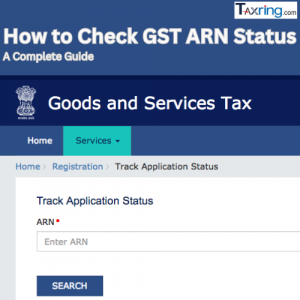-1920x700.png)
What is an Audit Report? Types & Format Explained
Tax audit: The deadline for submitting an income tax audit report is October 7, 2024, for fiscal year 2023-24 (AY 2024-25). If you fail to submit your tax audit report by October 7, 2024, you will face a penalty. The penalty is Rs 1.5 lakh, or 0.5% of total sales, whichever is lesser.
The income tax audit deadline is October 7, 2024, for fiscal year 2023-24 (AY 2024-25). However, this is an extended deadline, so if you were counting on it, don't. The intended deadline for submitting an income tax audit report through the e-filing ITR portal was September 30, 2024. The government is unlikely to extend the date again.
What is an Audit Report? Understanding Its Importance in Financial Oversight
An audit report is a comprehensive document that summarizes an organization’s financial statements, internal controls, and accounting practices. Its primary purpose is to assess whether the financial information is accurate, complete, and compliant with generally accepted accounting principles (GAAP) or other relevant accounting standards.
The Financial Accounting (FASB) establishes these principles to ensure that the auditing process is transparent and objective. This allows auditors to maintain an unbiased perspective when forming their judgments.
Audit reports can be conducted by an internal audit committee as part of their internal control framework or by an external auditor. These reports are invaluable for an organization’s executive board, as they help identify areas for improvement and provide clarity on what is necessary to attract potential investors.
Understanding the nuances of an audit report is crucial for stakeholders seeking to enhance financial oversight and accountability within their organizations.
What Are the 4 Audit Report Types?
Audit reporting serves as a trusted benchmark for regulators and investors to assess the credibility of a company’s financial statements. Grasping the four types of audit opinions is essential for effective financial analysis. Let’s explore these types in detail.
1. Unqualified Audit Opinion (Clean Report)
An unqualified audit opinion, often referred to as a clean report, signifies that the auditor found no significant issues with the company’s financial records. This opinion confirms that the financial statements comply with generally accepted accounting principles (GAAP).
Example: The auditor reviews the financial statements and concludes that they accurately reflect the company’s financial position, income, and cash flows in accordance with GAAP.
Implications: A clean report enhances investor confidence, indicating that the financial reporting is transparent and reliable.
2. Qualified Audit Opinion (Qualified Report)
A qualified audit opinion means the auditor believes that the financial statements are fairly presented, but there are specific exceptions. These exceptions may arise from deviations from GAAP or limitations in the scope of the audit.
Example: The auditor finds that while the financial statements are generally accurate, there is a significant GAAP violation in the calculation of depreciation expenses.
Implications: Although most financial statements are deemed reliable, certain areas require attention and correction. Companies receiving a qualified report may need to address the identified issues to improve their financial standing.
3. Disclaimer of Opinion (Disclaimer Report)
A disclaimer of opinion is issued when the auditor cannot form a conclusive opinion due to reasons such as lack of independence, scope limitations, or doubts regarding the company’s ability to continue as a going concern.
Example: If the auditor cannot access crucial financial records due to legal disputes between the company and a third party, a disclaimer report would be issued due to the inability to form a definitive opinion.
Implications:A disclaimer of opinion raises concerns about the reliability of the financial information. It can damage the company’s reputation and hinder access to capital.
4. Adverse Audit Opinion (Adverse Report)
An adverse audit opinion represents the most critical and unfavorable assessment. It is issued when the auditor uncovers significant irregularities or misrepresentations in the company’s financial statements, indicating a substantial departure from GAAP.
Example: If the auditor discovers serious irregularities, such as deliberate manipulation of revenue figures or fraudulent activities like embezzlement, an adverse opinion report will be issued, highlighting these discrepancies.
Implications: An adverse opinion generates red flags, leading to investor distrust, increased regulatory scrutiny, and potential legal repercussions. Immediate corrective action is essential.
Conclusion
The types of audit opinions a company receives carry significant implications for its credibility, investor trust, and regulatory oversight. Striving for an unqualified (clean) report is ideal, as other opinion types signal concerns about financial accuracy and reliability that necessitate corrective measures. Understanding these audit report types is crucial for stakeholders aiming to navigate the complexities of financial reporting effectively.
Standardized Audit Report Format
I. Title
The title should clearly state "Independent Auditor’s Report."
II. Addressee
This section specifies the recipient of the audit report, typically the company’s shareholders or board of directors.
III. Responsibilities of the Auditor and Management
This part outlines the responsibilities of both the auditor and the company’s management:
- Management's Responsibility: Management is responsible for the preparation and fair presentation of the financial statements in accordance with applicable accounting standards.
- Auditor's Responsibility:The auditor is responsible for conducting the audit in accordance with accepted auditing standards and expressing an opinion on the financial statements.
IV. Scope of the Audit
This section describes the extent of the audit, noting adherence to relevant auditing standards. It assures stakeholders of the audit's thoroughness and its coverage of the company's financial reports. It also mentions the assessment of internal controls and any limitations encountered during the audit.
V. Opinion of the Auditor
Here, the auditor provides their opinion on whether the financial statements present a true and fair view in accordance with applicable accounting standards. The opinion may be:
- Unqualified (Clean) Opinion
- Qualified Opinion
- Adverse Opinion
- Disclaimer of Opinion
VI. Basis of Opinion
This section explains the criteria and standards against which the auditor evaluated the financial statements, typically referencing GAAP or other relevant accounting standards.
VII. Signature of Auditor
The auditor must sign the report, affirming their responsibility for the content and conclusions of the audit.
VIII. Place of Signature
Include the city where the auditor signs the report.
IX. Date of the Audit Report
State the date when the audit report is completed.
X. Date of Signature
Indicate the date when the auditor signs the report, which may differ from the date of completion of the audit.
Sample Audit Report
Independent Auditor’s Report
To the Board of Directors,
[Company Name]
Responsibilities of the Auditor and Management
Management is responsible for the preparation and fair presentation of the financial statements in accordance with [GAAP/IFRS]. Our responsibility is to express an opinion on these financial statements based on our audit.
Scope of the Audit
We conducted our audit in accordance with [applicable auditing standards]. Our audit included examining, on a test basis, evidence supporting the amounts and disclosures in the financial statements. We believe our audit provides a reasonable basis for our opinion.
Opinion of the Auditor
In our opinion, the financial statements present fairly, in all material respects, the financial position of [Company Name] as of [date], in accordance with [GAAP/IFRS].
Basis of Opinion
Our audit was conducted in accordance with [specific standards]. We obtained sufficient appropriate audit evidence to provide a basis for our opinion.
[Signature]
[Auditor’s Name]
[Title]
[Audit Firm Name]
[City], [State]
[Date of Audit Report]
[Date of Signature]
This format provides a clear and structured approach to presenting an audit report, ensuring all critical elements are included for effective communication with stakeholders.
What happens if you fail to file a tax audit report by October 7, 2024?
The deadline for electronically filing tax audit reports has been extended by seven days to October 7, 2024.
This means that the tax audit should have been completed by September 30, 2024, and the file can be done on October 7, 2024. If these deadlines are not met, the consequences will be as specified in the Income Tax Act of 1961. noncompliance with section 44AB (tax audit) will result in a penalty of 0.5% of total sales, turnover, or gross receipts, whichever is less.
If you fail to file a tax audit report, your ITR may be declared invalid.
If you fail to file a tax audit report, your ITR may be declared invalid. Only taxpayers who are subject to an income tax audit must upload the audit report before filing an ITR; the two steps are inextricably linked and cannot be avoided. If you are subject to a tax audit, the initial deadline to file an ITR is October 31, 2024, for fiscal year 2023-24 (AY 2024-25). "If you do not upload the tax audit report after the deadline and pay a penalty, your income tax return (ITR) will be considered defective
Skipping filing an ITR even when a tax audit is filed has equally terrible repercussions.
If you miss the income tax deadline of October 31, 2024, for FY 2023-24, you'll need to file a belated Income Tax Return (ITR). Such returns can only be filed up to December 31 of the relevant assessment year, according to Kumar.
He outlines the consequences of filing a belated return:
- Late Fees under Section 234F: A fee of Rs 1,000 will apply, and this increases to Rs 5,000 if your declared income exceeds Rs 5 lakh.
- Interest on Outstanding Tax: You'll incur interest on any unpaid tax.
- Inability to Carry Forward Losses: You won't be able to carry forward any losses for set-off against future income.
Read also: How to file Belated return? , Consult a tax Professional , Section 44ab , Receiving an income tax notice get expert help
FAQ: Tax Audit Deadlines and Consequences
Q.What is the deadline for submitting the income tax audit report for FY 2023-24?
The deadline for submitting the income tax audit report for the fiscal year 2023-24 (Assessment Year 2024-25) is October 7, 2024
Q.What was the original deadline for the tax audit report?
The original deadline for submitting the tax audit report was September 30, 2024. The deadline was extended by seven days to October 7, 2024.
Q.What are the different types of audit opinions?
In addition to unqualified, qualified, adverse, and disclaimer opinions, auditors may issue "going concern" opinions about a company's sustainability and "emphasis of matter" opinions to highlight specific issues without altering the overall assessment.
Q.Can a company influence its audit opinion?
No, a company cannot choose its audit opinion. The auditor independently evaluates financial statements and forms an opinion based on their findings and professional judgment.
Q .How can I ensure my tax audit report is submitted on time?
To ensure timely submission:
- Start preparing your accounts and documentation early.
- Consult a tax professional
- Set reminders leading up to the deadline.
If you have more questions or need assistance, feel free to reach out!




